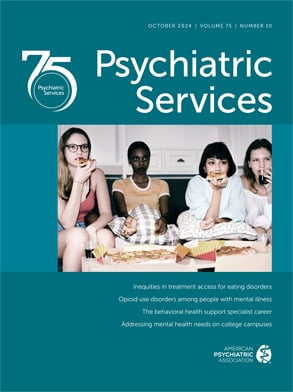This book originated in a 1991 conference on "Mental Illness in the Family" at the Clarke Institute of Psychiatry, where the editors are affiliated, at the University of Toronto. Although there have been many publications on families of persons with major mental illness since that time, these papers, expanded and updated, bring fresh insights and a wealth of new materials to our attention.
Various chapters trace developments in clinical thought over the past three decades, including the noxious impact of the noxious-family theories and the current emphasis on family strengths and resilience. Froma Walsh, a prominent family therapist, notes the family's crucial role in caregiving, problem solving, and ongoing support. She states that family therapy has been "tilting away from the earlier deficit-skew and power-based strategies." We are coming to recognize, Walsh says, "that successful interventions rest as much on the resources of the family as on the skills of the therapist, and that the most effective therapeutic relationships are collaborative partnerships." This is a model long sought by families, and one underlying current practice guidelines in schizophrenia.
Each chapter in this book addresses one or more topics that have a salience of their own in clinical practice, from general relationship issues to the demands and burdens of specific kinship roles. Clinical vignettes illustrate illness management techniques that reinforce patients' sense of responsibility for their own progress. One author addresses family needs when persons with mental illness are in the criminal justice system; another focuses on parents dealing with grief and mourning in the loss of a child to schizophrenia.
Many chapters highlight the issues germane to a particular family relationship. The sibling experience is well addressed, but actual help for siblings continues to be limited to general recommendations rather than descriptions of relevant programs—a deficit inherent in the system rather than the author.
Three chapters on parents with mental illness and their children are of particular value. Christina Bartha and Luis Goncalves write about the assessment of parenting capacity and risk, and about how one works with separated children to catalyze the work of mourning and loss and avoid idealization. Their project has developed nine comprehensive guidelines for evaluating parenting ability. The authors present theoretical and research materials, as well as a case history, which may be extremely useful to clinicians and child protection workers.
Other chapters give detailed case histories. One describes work with a six-year-old boy recovering from the loss of parents incompetent to rear him. Another details steps to support the parenting capability of a 21-year-old mother who has an infant and is now three months pregnant with another. The anxieties of clinicians and caregivers working with high-risk mother-infant dyads are well described.
Unfortunately, however, as in most books of this nature, case histories typically reflect assessment and short-term treatment. With no accompanying research, we have little idea of how such cases ultimately turn out. It is important to have some empirical evidence that dedicated staff and carefully planned interventions may actually produce long-term family preservation or other significant benefits for mentally ill parents and their children.
How do family issues relate to the progress of adult patients? Although research confirms that family psychoeducation has a significant role in deterring patient relapse (
1), we know little of the mediating variables or the effects on the families themselves. Agnes Hatfield's chapter speaks of family role adjustment and reintegration, not only as a support for the patient but for survival as a viable unit.
Is the family the major influence on the patient? Notably, the first chapter, by Leona Bachrach, deals with what patients say about their own service programs. The issues focus on control and power relationships and on staff attitudes rather than family interactions. In addition to staff treatment that respects and validates their personhood and the importance of therapists' having faith in their patients' ability to recover—themes also found by Agnes Hatfield and myself in the patient-authored literature (
2)—patients want an active role in their own program planning.
Certainly there are secondary and tertiary disabilities that derive from patienthood as much as from psychosis. Critical issues of preempted control, loss of autonomy, and a diminished sense of self-efficacy are manifest in patients' rueful recollections of the treatment system. Enabling patients to plan their treatment and to control at least a piece of their own destiny is crucially related not only to recovery but to relief of family burden (
3). Dependency is unwanted by both patients and families. A collaborative model of patients', clinicians', and families' planning together can strengthen patients' capacity for autonomy and restore their families to less burdensome, more normative supportive roles. This book will be helpful in attaining that goal.

